You are someone who knows how to finish things as you recently completed your first book. What lessons have you learned on your creative journey that might help those who are constantly starting stories but never seeing them through to the end? Great question! First, the story must have legs. It must compel and fascinate me enough to obsess you for months, if not years. My debut novel, The Norse Queen, took six years to write. I was working full time and commuted to work on the backroads so I could work on the story in my head. When I pulled into the parking lot or my driveway, I would scribble everything I’d come up with on the drive. I know, a tape recorder would have been better, but it didn’t work for me. I adore the research, poring over books about the Vikings, trying to translate texts from Norwegian. I went to Norway twice, and dogged the steps of archeologists. So, obsession helps, but maturity is also important. I tried to become a novelist in my twenties, and actually forced myself to finish a literary novel that made me so miserable I gave up writing for years. I wanted to have adventures, not sit in front of a computer, so I chucked that miserable novel in the sock drawer and went to sea. Years later, I had calmed down a bit and was ready to dive down the rabbit hole. "So, obsession helps, but maturity is also important. I tried to become a novelist in my twenties, and actually forced myself to finish a literary novel that made me so miserable I gave up writing for years." You and I share two particular things in common: an interest in writing stories about Vikings and the area of the world we live in, specifically the Pacific Northwest! I often hear the Pacific Northwest, especially the coast, being compared to the iconic geographical features of Norway and Sweden. How has living in this part of the world influenced the world you write about in your historical fiction? I do feel like I’m in touch with Norway in the Pacific Northwest. It is very similar in many ways. I love the sea and always want to be close to it, and the fact that seagoing is still a way of life here helps a lot. Maria Headley has famously challenged the male-dominated narrative of the epic poem Beowulf, both through her award-winning book The Mere Wife and her new feminist translation of the original text. What was your process for discovering, uncovering, and filling in the gaps of Åsa’s story in your Norsewomen series? There was very little fiction from a Viking woman’s point of view, so I had to put my story on the bare bones of archeological discoveries. I read a ton of archeological books, especially Neil Price’s The Viking Way, as well as the sagas and the various annals from the time. I try to stay up-to-date on new discoveries that can have a major impact on my writing. About midway during my writing of The Norse Queen, BJ581 became big news. BJ581 is a grave in Birka, Sweden, that was uncovered by an archeologist in the mid-1800’s. The burial was a full weapons grave with two horses. The occupant was buried most likely sitting upright on a saddle. It was long considered a chieftain or war leader’s grave. In 2017 the only occupant was proven to be that of a woman! "I try to stay up-to-date on new discoveries that can have a major impact on my writing. About midway during my writing of The Norse Queen, BJ581 became big news." You have a really interesting background knowledge concerning the handling of raptors (falcons, eagles, etc). How important were raptors to Vikings and in what ways were they used? Were they symbolic or culturally significant in any particular ways? Viking falconry is an elusive subject. There’s not a lot of archaeological evidence—most of the harnesses, hoods, jesses, etc. were leather and didn’t survive burial or cremation graves. Bronze or copper items such as swivels and tiny bells have been found in burials, as well as some raptor bones. There are picture stones in Norway and Sweden that portray hawking scenes. The Carolingian Chronicles mention that the Danish King Godfried was murdered just as he was about to release his hawk. In Hrolf’s Saga Kraki, riders with hawks on their shoulders are mentioned. The goddess Freyja owned a falcon cloak that enabled the wearer to fly—possibly alluding to “shapeshifting” (in which the shaman’s spirit enters an animal).
"Some of the most magnificent raptors are found in Norway, and the Norse traded in falcons." Your third book is in the final stages of development and will soon be released. How did you find the process of completing your third book compared to the challenge of finishing your first one? And what have you learned along the way that might help a new writer who is stuck on their first book?
My writing method is a strange amalgamation of pantsing and plotting. I write a lot of scenes until I get stuck and then I drag out one of my writing craft books such as Story Engineering by Larry Brooks, or The Night Time Novelist by Joseph Bates, and just follow the steps until the writing begins to flow again. It works every time. I think I just run out of plot and need to go back and impose more structure. In the later stages of writing I flit all over the place, making the beginning, middle, and end work together, and at one point I was working on all 3 books at once. Like most writers, the majority of the writing I do is actually revision. Just get something down on paper so you have something to work with, then go back and work on it until it’s right. "Just get something down on paper so you have something to work with, then go back and work on it until it’s right." Will there be another book in the Norsewomen series or are you going to begin a different project following the release of the third book? Can you give us any hints or sneak peaks? I’m already working on the fourth book. Åsa ruled for 20 years and there is absolutely nothing written about those years. The tale doesn’t pick up again until her son takes over the kingdom, and she is never mentioned again. I have a lot to explore! Where can readers find your books and keep track of your latest articles and publications? My books are available on Amazon in paperback, ebook, and free on Kindle Unlimited. I also have a website, a Facebook page, and I’m active on Twitter. Find out more about Johanna's Norsewomen series on her website!
0 Comments
Welcome John! Thanks for taking some time to chat about writing. First, a few quick-fire questions: What is your favourite book series of all time? Do you prefer a pen or a pencil? And (most contentiously), what is your favourite bookshop in Vancouver? Josh, thanks so much for making time for me. I always love to chat about writing, and in that vein, congratulations on your recent launch of "The Gatewatch." I wish you all the success in the world. Okay, now to your questions--OMG, quick-fire? Really? In my mind, all three of these are contentious and deserve exploration to do them justice. First up--my favourite book series of all time. Like I suspect is the case with many readers, mine's changed over time (either that or I'm hopelessly fickle, which is also a distinct possibility). When I was about sixteen, I liked The Belgariad by David Eddings. It was the first modern fantasy series I encountered after reading The Chronicles of Narnia and The Lord of the Rings, and it led to me falling in love with the genre. In my twenties, my favourite became The Warlord Chronicles by Bernard Cornwell. My first introduction to the Arthurian Cycle came through the original Welsh legends and I've always been dubious/snobbish/a bit of a jerk when it comes to the character of Lancelot. The way the character was presented to me showed him as a twelfth-century addition, with the intent of promoting the tenets of courtly love (I was also told he usurped Gawain's place in the legends, whom I've always liked). "In Cornwell's series, he treats Lancelot with the same disdain I've always felt for the character, and it made me cheer to see someone else with the same prejudice against a fictional character created eight hundred and fifty years ago." In Cornwell's series, he treats Lancelot with the same disdain I've always felt for the character, and it made me cheer to see someone else with the same prejudice against a fictional character created eight hundred and fifty years ago. Today--after much deliberation (as I've read many good series and had a difficult time picking just one)--I'll say my current favourite is The Gentleman Bastards by Scott Lynch. Lynch's series (which isn't complete yet) is a fun rogue's story that has me eagerly awaiting it's next installment. Now, to weigh in on the pen versus pencil debate--well, it depends on what I'm writing. If it's quick notes to myself, I prefer the pencil and notepad I keep on my desk. If it's writing something requiring more longevity--like a grocery wish list, or the draft of a story I'm writing, or critiquing a student's work--I prefer pen. However, I will point out my handwriting is absolute crap in any case (I failed penmanship in public school for as long as they gave marks for it), so if I want someone else to actually read what I've written, I've got to concentrate very hard. In all honesty, I prefer a computer (I can usually type much faster than write with either a pen or a pencil), with legibility being a very welcome by-product). "In all honesty, I prefer a computer (I can usually type much faster than write with either a pen or a pencil), with legibility being a very welcome by-product)." And finally, my favourite bookshop in Vancouver...um, well, it's actually in Chilliwack. I live in North Vancouver and with bridge traffic being what it's become the past few years, I find going overtown has become a major pain in the ass I prefer to avoid. However, I really like going to bookstores so for me to cross Burrard Inlet, the destination has to be worth it. I first came across The Book Man several years ago and quite frankly, it's one of the few used book stores I've been to which is completely catalogued (and fully integrated with their Abbotsford location), is laid out neatly, and doesn't smell like musty pages. Their selection is wide and I've had a trading account with them for years (wherein I give them books I know I won't read again for credit against the new-to-me books I bring home). Every now and then my wife and I make a day trip out to Chilliwack for lunch and bring back a book haul to add to our seemingly-never-depleting TBR piles. Describe your writing practice. Do you have a specific space that you write or do you like to write in different places? Do you like white noise, music, or silence? Do you have a schedule or do you write as inspiration strikes? I'm lucky to have an office within stumbling distance of my bedroom (it's just down the hall on the far side of the bathroom), complete with a whiteboard on one wall, a corkboard on another, a map of my fantasy world on a third, a shelf of reference books, and an old dining table for a desk. Occasionally, I set up a tarp and drag my laptop (along with our main dining table) out on our patio, but I usually only do that on the hottest of summer days. "I'm lucky to have an office within stumbling distance of my bedroom (it's just down the hall on the far side of the bathroom), complete with a whiteboard on one wall, a corkboard on another, a map of my fantasy world on a third, a shelf of reference books, and an old dining table for a desk." As for background noise, I generally prefer silence, but sometimes will use ambient sounds to create a specific mood (like waves on a pebble beach or a forest at night or the sounds of a fantasy tavern--whatever I think the scene I'm writing requires). When I'm not looking for auditory inspiration, I've got a set of industrial-strength protective ear muffs I wear to ignore the intermittent sounds I find so plaguingly-distracting such as leaf blowers, basketballs, back-up beepers, garbage and recycling trucks, exuberant children, and neighbours with large voices. As to a schedule, I generally write Monday to Friday, from when I wake up until mid-afternoon (when I drag my butt outside and go for an hour-long hike to offset the damage my many hours of continuous sitting do to me). You’ve taught Creative Writing at many places: Capilano University, Simon Fraser University, and the University of British Columbia to name a few. What has teaching creative writing brought to your own practice as a writer? Humility. As luck/fate would have it, the very first student paper I had to grade was submitted by a student who I recognized immediately was a far better writer than I was. Yes, I had a rubric to help guide me, and yes, this writer ticked all the boxes for what the assignment called for, but outside of that, the evident passion, precise clarity, and emotional depth with which that manuscript was written just blew me away. And the fact that I can still remember that story today speaks volumes in my mind. "...the evident passion, precise clarity, and emotional depth with which that manuscript was written just blew me away. And the fact that I can still remember that story today speaks volumes in my mind." Respect. While I was taking courses on how to specifically teach creative writing, I met a professor who shared some advice I've never forgotten (to paraphrase): Always be respectful when critiquing a student's (or anyone's) work. Writing is often very close to people's hearts and it can take great courage to share. As a teacher, I have the power to cause a student to never write again if I choose to say something flippant or hurtful (which I try never to do). The way I understand it, people typically study subjects in order to improve, so I try to be as supportive as I can, while also being encouraging, honest, and (hopefully) helpful. And finally, for my own practice of putting words on paper, the biggest lesson I've learned from my students comes as a result of both humility and respect: taking comfort in the fact I'm not alone, unique, or even as big a blockhead as I sometimes think I am. Most of the writing problems, insecurities, and other challenges I encounter, I've seen my students face (and usually solve) many times over. It's very comforting to know that writing--even though it's an inherently solitary act--can be a shared communal experience (and that's even before what happens when readers get a hold of your stuff). "It's very comforting to know that writing--even though it's an inherently solitary act--can be a shared communal experience (and that's even before what happens when readers get a hold of your stuff)." Speculative fiction is an umbrella term for a diverse array of writing genres, including sci-fi, fantasy, horror, alternate history, apocalyptic, superhero and supernatural fiction. All typically involve worlds unlike our own. What is it that draws you to speculative fiction as a writer? And are there any specific genres that you feel suit your writing style particularly well or do you like to experiment across multiple genres? What draws me to speculative fiction as a writer? It's simple--I want to write what I like to read. Ever since I finished reading C.S. Lewis's The Horse and His Boy (I think I was seven or eight at the time), I knew I wanted more stories like that one, stories filled with adventure, danger, excitement, fear, fun, and wonder. Stories set on different worlds where people lived lives different from my own, according to a different set of rules. Oh yeah, and magic--I've always thought that was pretty cool. And mystical creatures, too. And swords. Yeah, I like swords. "Oh yeah, and magic--I've always thought that was pretty cool. And mystical creatures, too. And swords. Yeah, I like swords."
You’ve got a new story about a werewolf stuck in a halfway house with vampires coming out in Speculative North. I’ve noticed a bit of a resurgence of interest in monster fiction online (vampires specifically) and I want to know, what do you think keeps drawing people back to stories about werewolves and vampires? What is it about these creatures that fascinates us so deeply? To be honest, I really don't know why these creatures have such a grip on the Western imagination. Maybe it's cultural familiarity, maybe it's a collective thrill, maybe it's the security of a fear people can understand the rules of (thereby making it conquerable). I once heard Margaret Atwood link the popularity of monster stories to contemporary fears about disease--lycanthropy to rabies, vampirism to tuberculosis, and zombism to Alzheimer's. "I once heard Margaret Atwood link the popularity of monster stories to contemporary fears about disease--lycanthropy to rabies, vampirism to tuberculosis, and zombism to Alzheimer's."
Ulrica (my werewolf) is placed in the unfair, untenable, and completely unreasonable position of trying to keep her shit together while contending with increasing provocations from sources which have no regard for her as a person whatsoever (in part, the vampires). Aside from being fun to write, the ending was also very cathartic for me. One of the things I feel that newer writers really struggle with is conveying emotion. Typically, I find that they err on the side of overwriting emotion to the point that their descriptions become either redundant or hyperbolized. What advice can you offer these writers about writing emotion well? If you're a writer struggling to convey emotion, here's my advice: relax and don't worry about being redundant or hyperbolizing... whatever you write in a first draft--you'll fix in revision. For me, the purpose of a first draft is solely for getting a story down on paper (or on the computer--or, well, anywhere, really, just as long as it's no longer just in your head). A first draft is not for sharing; it's for giving you something to work with. If you find you've gone too far in trying to convey emotion, simply pull it back in subsequent drafts (yeah, drafts is plural). If you find you've cut too much, simply add more until you find the right balance. I honestly believe no manuscript written by no author ever (whether new or veteran), can't help but be improved with revision. Rather than let this scare you, take comfort in the opportunity to fix everything and anything before you share it with a reader. "A first draft is not for sharing; it's for giving you something to work with. If you find you've gone too far in trying to convey emotion, simply pull it back in subsequent drafts (yeah, drafts is plural)." Now, if you've revised your manuscript as much as you can and still aren't convinced you've successfully conveyed the emotion you want to, my suggestion is this (and OMG, it is so not original advice)--show, don't tell. For a quick example, rather than tell your reader that Director Chalmers, the Overseer of the Principal Europan Water Collection Plant is the angriest she's ever been in her life at Technician MacNulty's stupidity for letting the sewage outflow pass through the potable water intake filters, show how pissed she is by having her punch (and crack) the only glass window in the air-tight facility; or by having her physically pick up MacNulty and throw him into the sewage tanks (although I understand Europa's gravity is only about 13% of Earth's, so this might not be such a remarkable feat); or, have her grit her teeth so hard she draws blood or chips a tooth, or, call him a list of four-letter names three paragraphs long (never once repeating herself), or you could even do something as subtle as have her shake her head, lower her voice to a whisper, and tell MacNulty to return to his quarters (which, given Director Chalmer's possible past behaviour, might be the most menacing response of all). "...or you could even do something as subtle as have her shake her head, lower her voice to a whisper, and tell MacNulty to return to his quarters (which, given Director Chalmer's possible past behaviour, might be the most menacing response of all)." In any case, I hope you get the idea. It's in specific details and actions where the more enduring fictional impressions are created and by showing your readers how angry Director Chalmers is, they'll infer (usually, very quickly) what you want them to understand, with the side effect that any connection the reader makes (as in Director Chalmer's behaviour betraying her emotional state), will have much more impact than simply telling your reader the information, and should avoid the tendency toward redundancy or hyperbole. Can you give us any hints or clues about what your next project is? Any sneak-peek quotes or teasers? I'd be happy to give you a tiny sneak-peek, but I will preface it by warning what I'm about to share may not end up in the final version of the story. I'm currently working on a dark fantasy trilogy (tentatively called "The Unhallowed"), and (at the moment) I'm planning on opening book one with an excerpt from its epilogue (the idea being to give readers a sense of where the story is going, and to let them know which characters they should pay attention to). Oh, and I think it's only fair to say this story could easily be classified as grimdark, so expect something a little twisted and morally questionable. Here goes: Where can readers find the current issue of Speculative North and how can they keep track of your future publications? Speculative North is available for purchase on Amazon, and I'm also told an electronic version will be free from the publisher for a short time after that. As for keeping track of my future publications... I've got a website which should have all the information anyone could possibly want, a very infrequent newsletter (which you can sign up for on my website), a Facebook page, and I'm pretty consistent about putting things up on Goodreads, too. Read John Mavin's short story "Restraint" and more amazing Canadian short fiction in the TDOTSPEC publication Speculative North! |
AuthorJoshua Gillingham is an author, editor, and game designer from Vancouver Island, Canada. Archives
April 2022
Categories
All
|

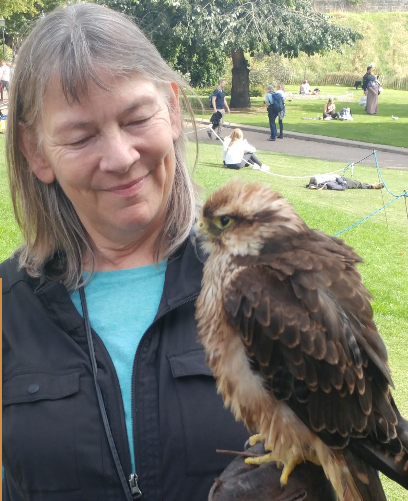


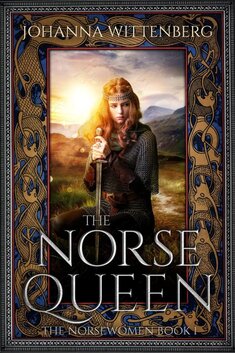
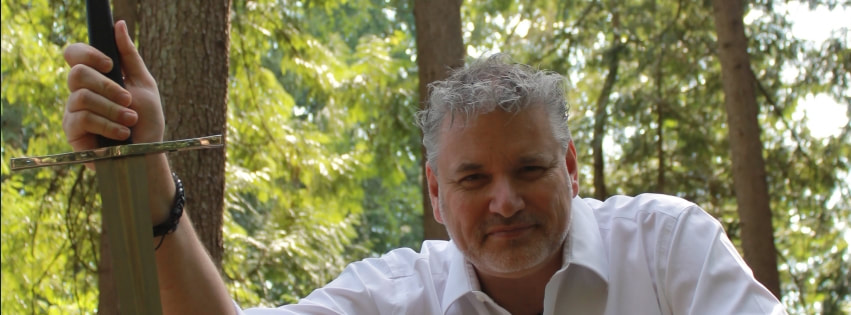

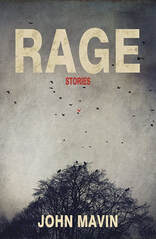
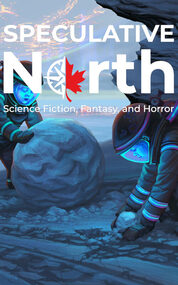

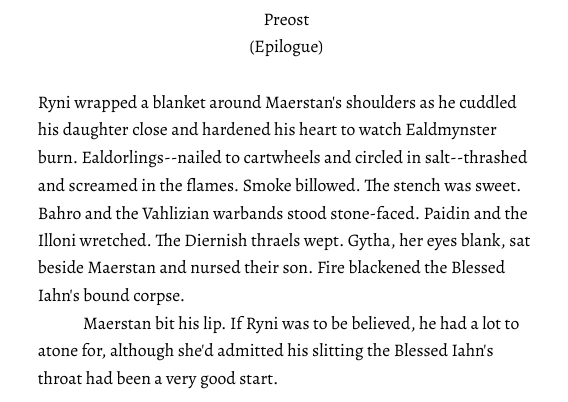
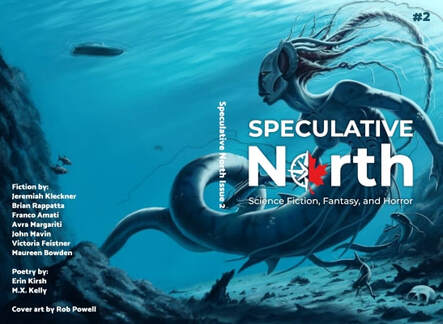
 RSS Feed
RSS Feed
